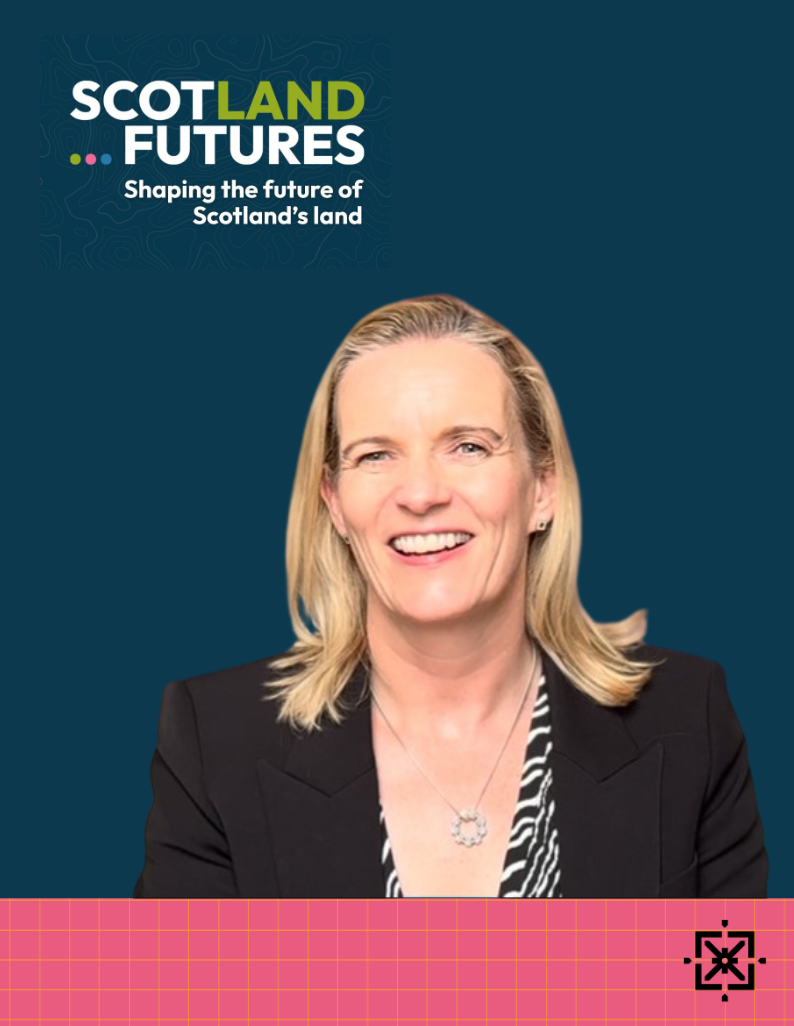News | Posted October 20, 2025
Planning Aid Scotland contributes to ScotLand Futures conversation on the future of Land Reform
As part of ScotLand Futures, an initiative from the Scottish Land Commission exploring what it would mean to complete Scotland’s Land Reform journey, Planning Aid Scotland was invited to contribute a personal perspective on how the planning system and community empowerment intersect with questions of land, place and power.
The ScotLand Futures project asks what it would take to finish Scotland’s Land Reform journey and how doing so could help deliver national ambitions for a fairer, greener and more prosperous country. The issue of land, its ownership, use and value, remains central to Scotland’s identity, economy and communities. Over the past 25 years, significant progress has been made on land reform, yet the journey is far from complete.
Reframing the conversation
The debate around land reform has often focused on ownership, who holds land, and how it can be redistributed or brought into community hands. But as Johanna Boyd, Chief Executive of Planning Aid Scotland, underlined during the discussion, true reform runs deeper.
“Land Reform is not just about ownership, it’s about relationships”, she said. “The quality of dialogue between communities and landowners can make or break local ambitions. Where there is openness and trust, the potential for collaboration is enormous.”
Across Scotland, examples of this kind of collaboration are emerging: joint land management plans, shared investment in local priorities, and long-term partnerships that deliver real benefits for both communities and landowners.
“We need to see more of this,” Boyd continued. “More partnership, more shared planning, and more spaces for communities and landowners to work together towards common goals.”
From conflict to co-creation
Showcasing good practice, she said, is key. There are powerful stories from across the country that show what can happen when landowners engage meaningfully with local people, not as a statutory obligation, but as a shared opportunity.
These stories demonstrate that Land Reform, at its best, is not about division or conflict. It is about co-creation: shaping places collaboratively, using local knowledge and shared priorities as a foundation for change.
That principle aligns with the work of Planning Aid Scotland, which for over 30 years has supported individuals and communities to engage with planning decision-making and have a say in how their local areas develop. From community-led plans to advice on rural housing and regeneration, the charity’s mission is rooted in participation and fairness, values that lie at the heart of the Land Reform journey.
The next steps
As Scotland looks ahead to the next phase of reform, the country needs a “settled view” on the future of land, one that reflects both national ambitions and local realities.
The public conversation aimed to explore what the final destination of this journey might look like, and how future policies can balance private rights with public good. For organisations like Planning Aid Scotland, the message is clear: progress will depend on dialogue and trust.
“Communities want to have influence over the places they live”, Boyd said. “That doesn’t mean taking on everything, but it does mean being heard and being part of the journey. And if we are serious about building a greener, fairer and more prosperous Scotland, then partnership, genuine, long-term, respectful partnership, must be part of the answer.”
Watch:
You can watch our full video contribution to ScotLand Futures on the Scottish Land Commission’s website: Four voices, one question: Part 3 – News – News & Events – Scottish Land Commission

